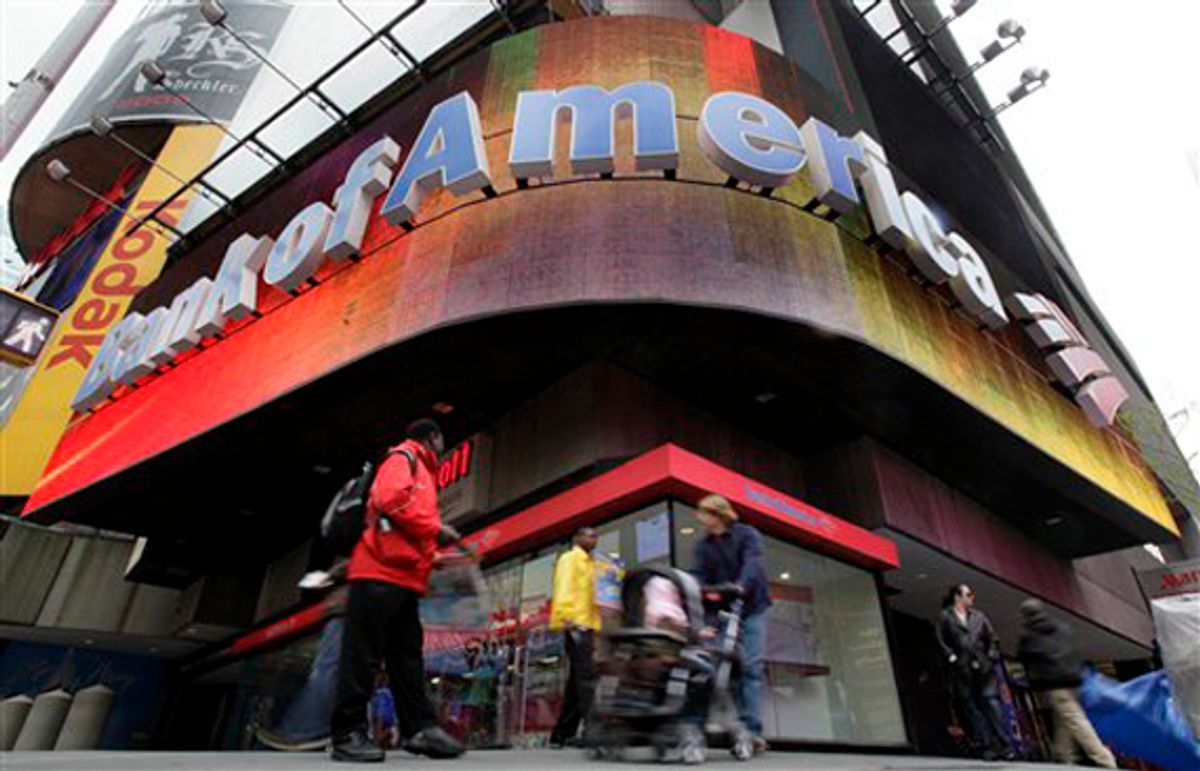The best way for Senate Democrats and the White House to respond to the Republican charge that the Dem plan for financial reform doesn’t go far enough to prevent another bailout is to call their bluff -- and simultaneously do what’s necessary to avoid another bailout: Cap the size of big banks, as the UK is close to doing for its big banks.
The so-called "resolution" mechanism the Dems are pushing to wind down any big bank that gets into trouble is a step in the right direction. But it won’t work if two or more giant banks are endangered at the same time -- which is likely to be the case when the next crisis occurs because every big bank uses whatever profitable financial ploys every other bank uses (as they did in the runup to the crash of 2008).
Furthermore, as I’ve noted before, as long as the big banks are allowed to be huge and become even bigger, their political clout in Washington will remain huge and become even bigger. And as long as they have this kind of clout, they’ll wangle a bailout from Washington the next time their bets get them into trouble regardless of any "resolution" authority.
So the Dem bill must cut the big banks down to size. The limit should be $100 billion in assets.
Banks complain that their global competitiveness will suffer if they’re held to this size. Baloney. No one has been able to show any competitive efficiencies above $100 billion in assets. And for Wall Street to suggest its global competitiveness is somehow tied to the competitiveness of the rest of the American economy is the height of hubris anyway. Wall Street is making deals all over the world (i.e. Goldman Sachs and Greece), it’s parking its money all over the world, its star employees reside all over the globe, and it invests wherever it can get the best deals all over the world.
The only competitive advantage to being a giant bank headquartered on Wall Street is to have the economic and political clout to get bailed out by American taxpayers when the next crisis hits. We have learned this once. We do not need to learn it again.
Repeat: The only sure way to ensure that no bank becomes too big to fail is to make sure no bank is too big.



Shares